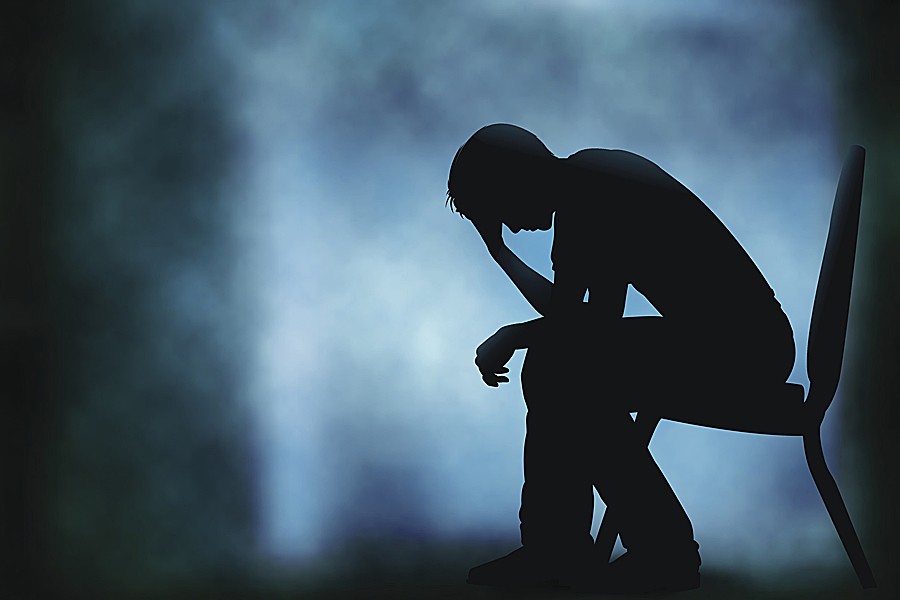Johns Hopkins' health observance topic for October is depression awareness. Depression is a serious illness that affects 16 million Americans—6.9 percent of the country's population. Research suggests that many people hold negative attitudes and stereotypes toward people with depression, often preventing someone with depression from seeking proper treatment. It's important to raise awareness about the mood disorder in order to reduce the stigma.
Depression is more than sadness
We all feel sad from time to time. It's a normal temporary reaction to upsetting experiences in life. Depression is different. When a person has depression, it interferes with daily life—eating, sleeping, working, and more. It affects not just the person with depression but also those who care about that person. Most people who experience depression need treatment to get better.
Know the signs and symptoms
If you experience any of the following symptoms for two weeks or longer, you may have depression:
- Persistent sad, anxious, or "empty" mood
- Feelings of hopelessness, guilt, worthlessness
- Loss of interest or pleasure in hobbies and activities
- Difficulty sleeping, fatigue
- Difficulty concentrating, remembering
Understanding depression
There are different types of depression, and they can impact people in different ways. It is best to start treatment early, but it's important to know that all forms of depression can be treated. Some forms of depression are:
- Major depression—severe symptoms that interfere with the ability to work, sleep, study, eat, and enjoy life
- Persistent depressive disorder—a depressed mood that lasts for at least two years
- Postpartum depression—more serious than the normal "baby blues" that many women experience after giving birth
- Seasonal affective disorder—depression that sets in during the winter months, when there is less natural sunlight, and typically fades during spring and summer
Treatment
Depression is usually treated with medication and/or talk therapy (psychotherapy). Typically, some trial and error is needed to find the right medication because no two people are affected by depression the same way, and it can take several weeks of treatment before you begin to feel better. It is essential to follow your doctor's treatment plan to keep depression from returning.
If you think a loved one has depression
The most important thing you can do for a friend or family member is help that person get a diagnosis and treatment. Encourage your loved one to stay in treatment or seek different treatment options if no improvement occurs after six to eight weeks. Other ways you can help:
- Offer emotional support, patience, and understanding.
- Listen carefully and never dismiss comments about suicide.
- Invite your loved one out for walks and outings. Keep trying even if he or she declines, but don't push.
- Offer hope and remind him or her that with time and treatment, the depression will lift.
It can be hard asking for help. If you are the person experiencing depression, some things you could say are: "I haven't been myself lately, and I'd like to talk to the provider about it." Or "I think I might be depressed, and I'd like some help."
Every situation is different, and there are resources available to help:
If you are having thoughts of death or suicide, contact the National Suicide Prevention Lifeline at 800-273-8255 or call 911 immediately.
Talk with your doctor to find the right treatment options.
Sources: National Institute of Mental Health and the CDC's Mental Health website.
Posted in Health+Well-Being
Tagged hr newswire








